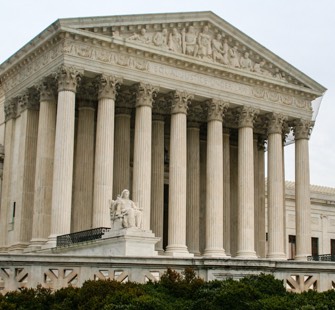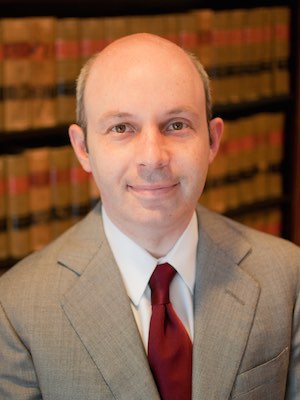Eli Lilly, Pfizer among those supporting Sequenom cert petition
 Recently, a group of amici led by Eli Lilly filed an amici curiae brief with the United States Supreme Court in the matter of Sequenom, Inc. v. Ariosa Diagnostics, Inc. The Eli Lilly brief was filed in support of the petitioner, Sequenom. Eli Lilly is joined in this brief by Eisai Inc., Upsher-Smith Laboratories, Inc., Pfizer Inc., and Etiometry, Inc.
Recently, a group of amici led by Eli Lilly filed an amici curiae brief with the United States Supreme Court in the matter of Sequenom, Inc. v. Ariosa Diagnostics, Inc. The Eli Lilly brief was filed in support of the petitioner, Sequenom. Eli Lilly is joined in this brief by Eisai Inc., Upsher-Smith Laboratories, Inc., Pfizer Inc., and Etiometry, Inc.
On March, 21, 2016, Sequenom filed a Petition for Writ of Certiorari in the Supreme Court, challenging the decision of the United States Court of Appeals for the Federal Circuit in Ariosa Diagnostics, Inc. v. Sequenom, Inc. If the Supreme Court takes this case, they will be asked to reconsider the unfortunate breadth of their prior ruling in Mayo Collaborative Servs. v. Prometheus Labs. See SCOTUS Blog Founder asks Supreme Court to Reconsider Mayo.
A patent conversation with Bruce Kisliuk
 Bruce Kisliuk retired from the United States Patent and Trademark Office last summer as the Deputy Commissioner for Patent Administration after a 30+ year career at the Office. He is now a senior patent counselor with Wilson Sonsini Goodrich & Rosati. I had always wanted to interview Kisliuk, but the opportunity never presented itself until recently. I interviewed Kisliuk on November 24, 2015, in a wide ranging conversation that lasted nearly 90 minutes.
Bruce Kisliuk retired from the United States Patent and Trademark Office last summer as the Deputy Commissioner for Patent Administration after a 30+ year career at the Office. He is now a senior patent counselor with Wilson Sonsini Goodrich & Rosati. I had always wanted to interview Kisliuk, but the opportunity never presented itself until recently. I interviewed Kisliuk on November 24, 2015, in a wide ranging conversation that lasted nearly 90 minutes.
In addition to a prolonged and detailed “get to know you” conversation where we dive into his musical tastes, that he is a history buff, and not at all into either Star Trek or Star Wars, we talked substantive patent law for an hour. What follows are the highlights of our conversation.
12.22.15 | patent eligibility, Patent Issues, posts | Gene Quinn
Will the Federal Circuit Reconsider Ariosa v. Sequenom en banc?
 On June 12, 2015, the United States Court of Appeals for the Federal Circuit issued a decision in Ariosa Diagnostics, Inc. v. Sequenom, Inc. The Federal Circuit decision has been widely criticized (see here and here, for example). Sequenom has asked for reconsideration en banc, with 12 separate amici filers in support of Sequenom’s petition for reconsideration en banc.
On June 12, 2015, the United States Court of Appeals for the Federal Circuit issued a decision in Ariosa Diagnostics, Inc. v. Sequenom, Inc. The Federal Circuit decision has been widely criticized (see here and here, for example). Sequenom has asked for reconsideration en banc, with 12 separate amici filers in support of Sequenom’s petition for reconsideration en banc.
The original panel decision dealt with whether a non-invasive method for detecting paternally inherited cell-free fetal DNA (“cffDNA”) from a blood sample of a pregnant woman was patentable. See U.S. Patent No. 6,258,540. The district court ruled that the method claims were patent ineligible and the Federal Circuit agreed. Judge Linn was uncomfortable with the decision, but wrote in a concurrence that he thought that the outcome was mandated by the “sweeping language of the test set out in Mayo.”
Sequenom has retained Tom Goldstein, co-founder of the SCOTUS blog, to handle the appeal. Goldstein has served as counsel in over 100 Supreme Court cases over the last 15 years. His presence sends a clear message that Sequenom is heading to the Supreme Court if they do not prevail in an en banc rehearing.
09.24.15 | Federal Circuit Cases, patent eligibility, Patent Issues | Gene Quinn
USPTO Releases 101 Guidance and Illustrative Examples
 Recently, the United States Patent and Trademark Office released several patent eligible subject matter examples, which together with the recently released patent eligibility guidance will give applicants, patent prosecutors and patent examiners more information about how the USPTO interprets the state of the law in this all-important area.
Recently, the United States Patent and Trademark Office released several patent eligible subject matter examples, which together with the recently released patent eligibility guidance will give applicants, patent prosecutors and patent examiners more information about how the USPTO interprets the state of the law in this all-important area.
To recap, in December 2014, the USPTO released Interim Eligibility Guidance, which provided information about how the Office interprets 35 U.S.C. 101 in light of recent Supreme Court decisions. This latest interim guidance supplements the guidance given by the office in June 2014 relative to the Supreme Court’s decision in Alice Corp. Pty. Ltd. v. CLS Bank Int’l, 573 U.S. __, 134 S. Ct. 2347 (2014). This guidance supersedes the March 4, 2014, eligibility guidance for claims involving laws of nature, natural phenomena and natural products, which was issued relative to the Supreme Court’s decisions in Mayo Collaborative Serv. v. Prometheus Labs., Inc., 566 U.S. __, 132 S. Ct. 1289 (2012) and Association for Molecular Pathology v. Myriad Genetics, Inc., 569 U.S. __, 133 S. Ct. 2107 (2013).
02.18.15 | Patent Issues, Patent Prosecution, USPTO | Gene Quinn
PTO & Alice – Things Have Really Changed
 Despite what the United States Patent and Trademark Office suggested in their initial guidance to patent examiners, the Supreme Court’s decision in Alice v. CLS Bank has substantially changed the prosecution landscape for computer implemented inventions (i.e., software).
Despite what the United States Patent and Trademark Office suggested in their initial guidance to patent examiners, the Supreme Court’s decision in Alice v. CLS Bank has substantially changed the prosecution landscape for computer implemented inventions (i.e., software).
At least initially, the USPTO guidance to examiners seemed extremely patentee friendly. In a memo to the patent examining corps, the USPTO explained that the reason Alice’s claims were determined to be patent ineligible was because “the generically-recited computers in the claims add nothing of substance to the underlying abstract idea.” The USPTO then went on to point out to patent examiners that there is no new category of innovation that is patent ineligible, nor is there any new or special requirements for the eligibility of either software or business methods. Deputy Commissioner for Patent Examination Policy Andrew Hirshfeld explained: “Notably, Alice Corp. neither creates a per se excluded category of subject matter, such as software or business methods, nor imposes any special requirements for eligibility of software or business methods.”
Hirshfeld also explained that there is now a slight change in the way applications are to be examined when claims involve abstract ideas. Essentially, it was said, Alice stands for the proposition that the same analysis should be used for all types of judicial exceptions and the same analysis should be used for all categories of invention. Still, even recognizing this shift in analysis, Hirshfeld told examiners: “[T]he basic inquiries to determine subject matter eligibility remain the same as explained in MPEP 2106(I).” (emphasis added). Therefore, this initial guidance clearly took the position that nothing has changed from a substantive law point of view as far as the USPTO was concerned.
07.29.14 | Patent Issues, posts, software patents, Supreme Court Cases, USPTO | Gene Quinn


No Comments
04.19.16 | Biotech, patent eligibility, Patent Issues, Pharma, posts, Supreme Court Cases | Gene Quinn